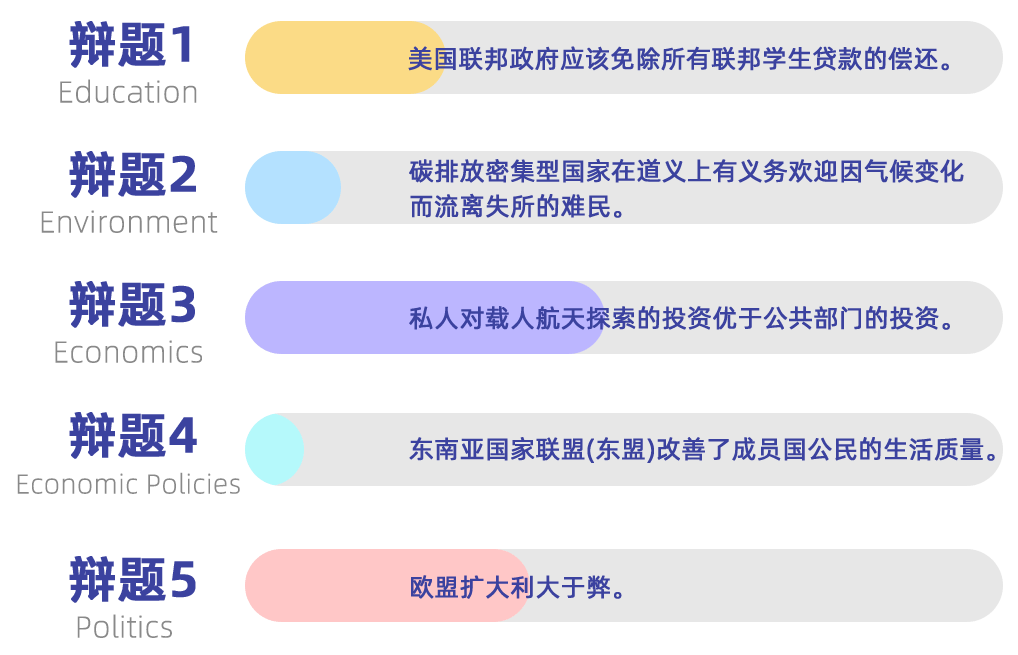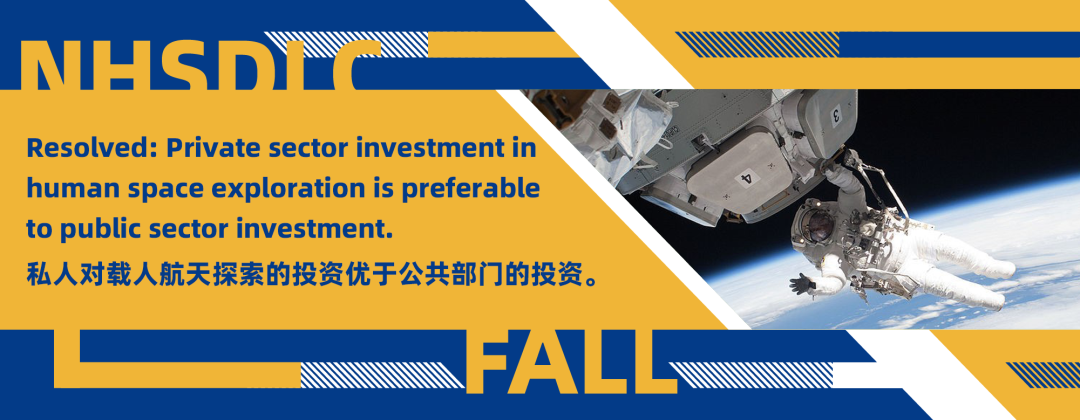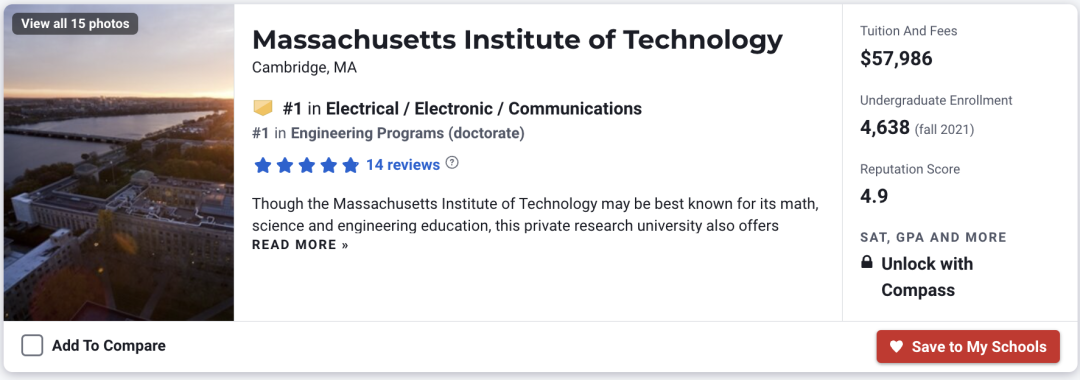本次投票简直戏剧性拉满,尤其是在前两次披露中分别占领高票的两大人气选手辩题3和辩题5票数始终紧咬不放,让组委会也忍不住为之捏一把汗。投票截止后的第二天,我们迫不及待地开始了计票工作,1300+选票如同开一个巨型盲盒是稳稳当当开出大热门还是爆冷黑马开出隐藏款?直到最后仍有反转!这份紧张刺激,家人们谁懂啊!
那么最后,究竟是哪一道辩题“成功出道”成为了最终的秋季辩题呢?现在就为大家揭晓!

本次秋季辩题总投票数为1355票 经组委会核查统计 最终有效票数为1051票 辩题3以五票的微弱优势胜出 当选2023秋季辩题!

Topic Introduction 辩题背景 - 2023 NHSDLC秋季常规赛 -
Born too late to explore earth,
born too early to explore space.
- Anonymous
This quote adequately describes humans. Earth is practically entirely mapped, and we never read about somebody discovering a new continent. Yet, we read on a daily basis about new exoplanets, new stars, new galaxies, and plenty of other astronomical discoveries that, perhaps, may open doors to a future of space exploration. This season’s resolution peeks at a corner of this broad topic: Resolved: Private sector investment in human space exploration is preferable to public sector investment.
私人对载人航天探索的投资优于公共部门的投资。
The question here is not if we should explore space, though that is certainly arguable if you wish, but more on who should be investing in space exploration, almost treating it as an inevitability. That said, what do you need to know before diving into researching this resolution?
Three key areas
1. Goals of human space exploration
2. Private versus public sector investment
3. Economic incentives
Perspective
1、Goals of human space exploration
人类太空探索的目标
First, the goals of human space exploration. Why do we want to explore space? To explore this question, first think back to history: why did humans explore Earth?
For one, there’s the obvious answer: colonialism and finding more ground to exploit. But deeper, at its core, because humans wanted to seek out the unknown – we wanted to find out more about the blue ball we call home. It is through that that European settlers “discovered” North America, and “discovered” Australia and New Zealand, which were discovered thousands of years (or hundreds in the case of New Zealand) prior, also by those exploring the planet.
A paper explains humanity’s goals with a more dire tone:
With some experts believing that human civilisation may not survive to the end of the century, the main goals for space exploration should first be the preservation of planet Earth as a human habitat and, second, for human beings to settle in another haven, e.g. to colonise Mars. […] The fundamental message of this article [–] humanity must become a spacefaring species.
In short, we may go extinct. Consequently, exploring space allows us, humanity, to possibly find a new home, which is imperative for human survival. We can’t place a price tag on billions of lives.
Perspective 2、
Private versus public sector investment
私人投资与公共部门投资
This leads to number two: private versus public sector investment. Who should pay the price tag? Honestly, both. But which should be prioritized? Which is more effective? More important? More likely to succeed? That is a question for you to answer with your research. As for possible directions to go in, think about two questions as you explore arguments: what worked in the past, and what is likely to work in the future? These do not necessarily have the same answer, though many answers are shared.
In exploring this you will find that your first impression of this resolution may be entirely wrong.
Perspective 3、
Economic incentives
经济诱因
Not going extinct is not the only reason to explore space. On top of not going extinct, humans can take advantage of what exists in space, that does not exist on Earth. That is, natural resources, or new technologies, or even aliens. These are all economic incentives, the third main area.
Natural resources.
These may be on asteroids, or exoplanets, or comets – the plenty of extraterrestrial bodies that exist in outer space. These bodies have a lot of resources, which could be worth trillions, or even quadrillions, of dollars. Obviously, you can argue that this sort of incentive to propagate capitalism is bad, or evil, or even contradictory to not going extinct. But it’s a source of wealth that currently does not exist on Earth.
Then, new technologies.
If we want to travel to another solar system, we need space faring technology that (1) does not exist right now, (2) may exist given enough investment, and (3) will allow us to travel around the galaxy, even if travel times may take many years.
It will enable humans to branch out and further explore this galaxy. These technologies, even if they take decades to become reality, will create hundreds of thousands of jobs, and pump Earth’s economy, and when they become reality, will possibly allow us to avoid extinction.

And, aliens. Recent developments in the US have implied that aliens may exist, though sources have not confirmed this fact. Regardless if aliens exist, further exploring the universe may give us opportunities to contact other civilizations. Whether this is good or bad, that is your job to answer. On the one hand, we may find friends whom we can collaborate with. On the other hand, we may cease to exist.
Carl Sagan said, Extinction is the rule. Survival is the exception.
灭绝是规则,生存是例外。
Perhaps humans can be the exception. Good luck! And have fun!
本次秋季辩题可以说是
既着眼于前沿科技探究的可行性
亦富有着诗人的浪漫情怀















